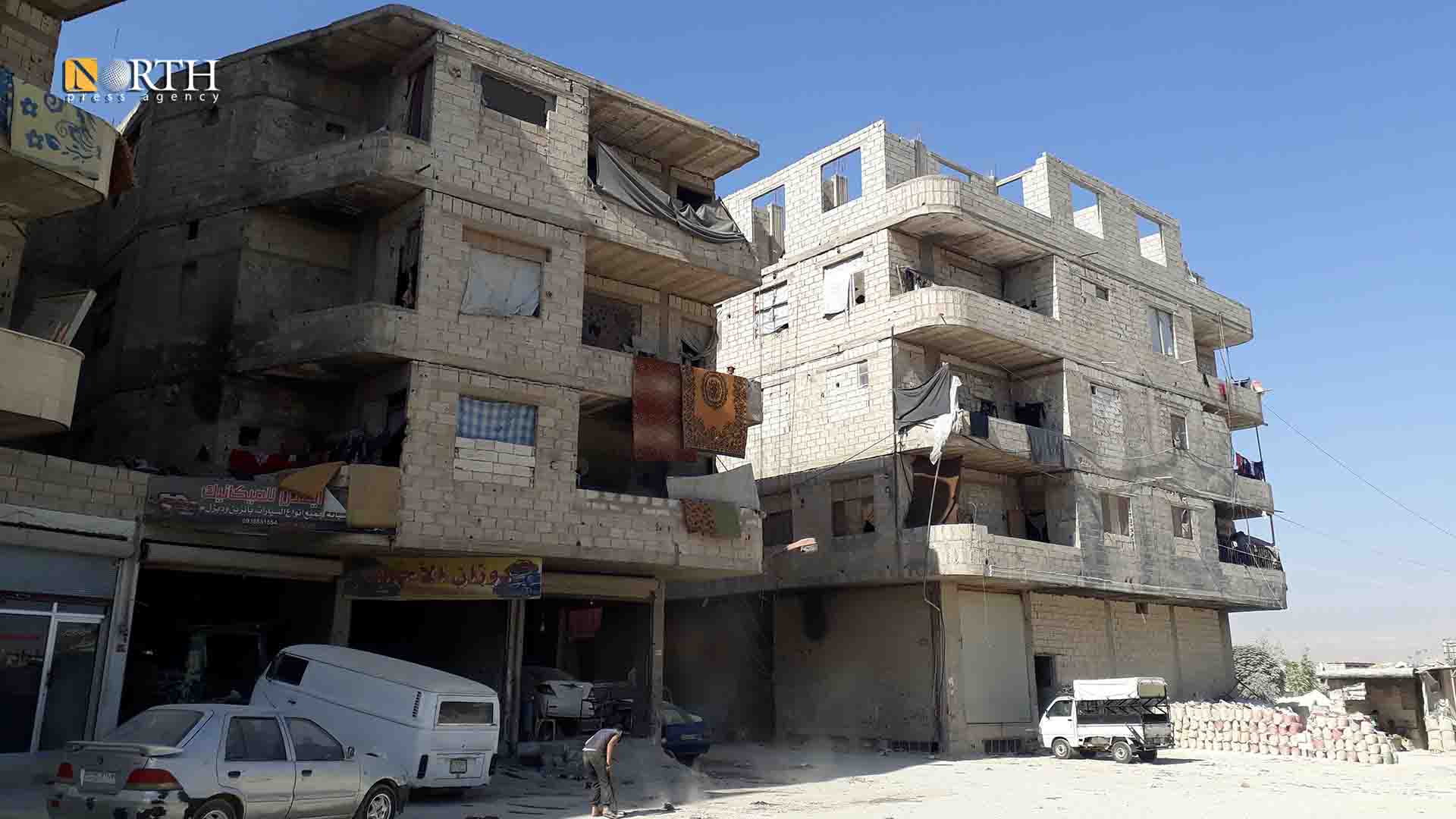
DAMASCUS, Syria (North Press) – Displaced Syrian families living in the countryside of the capital, Damascus, suffer from the deterioration of the living situation in light of the stifling crises the country is facing, from high prices of foodstuffs, bread, gasoline, and diesel, to other economic hardships that overburden them.
In the Daff al-Sakher neighborhood of Jaramana city, southeast Damascus, IDP Shadiya Othman, from the Douma region sits in front of the door of her windowless room, selling cookies and sweets to children in order to manage her livelihood.
“I have been suffering from difficult living conditions for eight years after was I displaced from my hometown. I depend on this kiosk to support myself, and sometimes the neighbors give me some money,” Othman said.
Othman’s suffering increases every year with the onset of winter, as she does not have a heater, in addition to continuous power outages, she says.
She cannot return to her house in al-Nashabiyah, her hometown. “I have no children; my sisters were all displaced, and I cannot return because my house is destroyed.”
Although the room in which Othman lives does not exceed 10 m², she pays SYP 20,000 per month in rent.
Othman’s living situation deteriorated even further over the past two years, as the aid provided by the Syrian Red Crescent, stopped. “I was receiving foodstuffs from the Red Crescent, but that aid stopped two years ago and I don’t know why,” she explained.
In May, the World Food Program (WFP) stated that 9,300,000 people in Syria suffer from food shortage, and that nearly half a million children have stunted growth as a result of malnutrition.
UN Secretary-General António Guterres said in a video message during the Fourth Brussels Conference in Support of the Future of Syria and the Region held last June: “After nearly a decade of war and economic hardship, the scale of suffering is still shocking.”
“We live in very harsh conditions; sometimes we go to sleep without food, because my husband works as a porter and what he gets from his work is not enough,” said Hadla Hamoud, an IDP from the Maskanah region in eastern Aleppo, who lives with her family in a house lacking windows, doors, or facilities in the Karam Samadi neighborhood in the city of Jaramana.
Her eldest 11-year-old child works collecting the remains of plastic parts, stale bread and other materials suitable for recycling from garbage bins, “to contribute to the household expenses with his father.”
Hamoud indicates that she receives a food basket from the Syrian Red Crescent every five months, which consists of a can of oil, two kilograms of sugar, a bundle of pasta and a kilogram of chickpeas. “This food basket is not enough for a week,” explained.
Owners of real estate offices in different neighborhoods of the countryside of Damascus told North Press that the percentage of rental contracts for unfinished houses ranges between 10% and 20% of the total number of rental contracts.
Rami al-Khayer, a lawyer from Damascus, said that there are illegal buildings in the city of Jaramana and its countryside which are not equipped and lack the minimum appropriate humanitarian conditions, “but the violators deliberately exploit the need of the IDPs for shelter and rent these buildings without preparing them.”
UN Emergency Relief Coordinator Mark Lowcock indicated at the Brussels Fourth Conference that the number of years of the Syrian crisis is approaching the number of years of the two world wars combined, and added, “It is wreaking havoc on the ground and severe economic tension across the region.”
